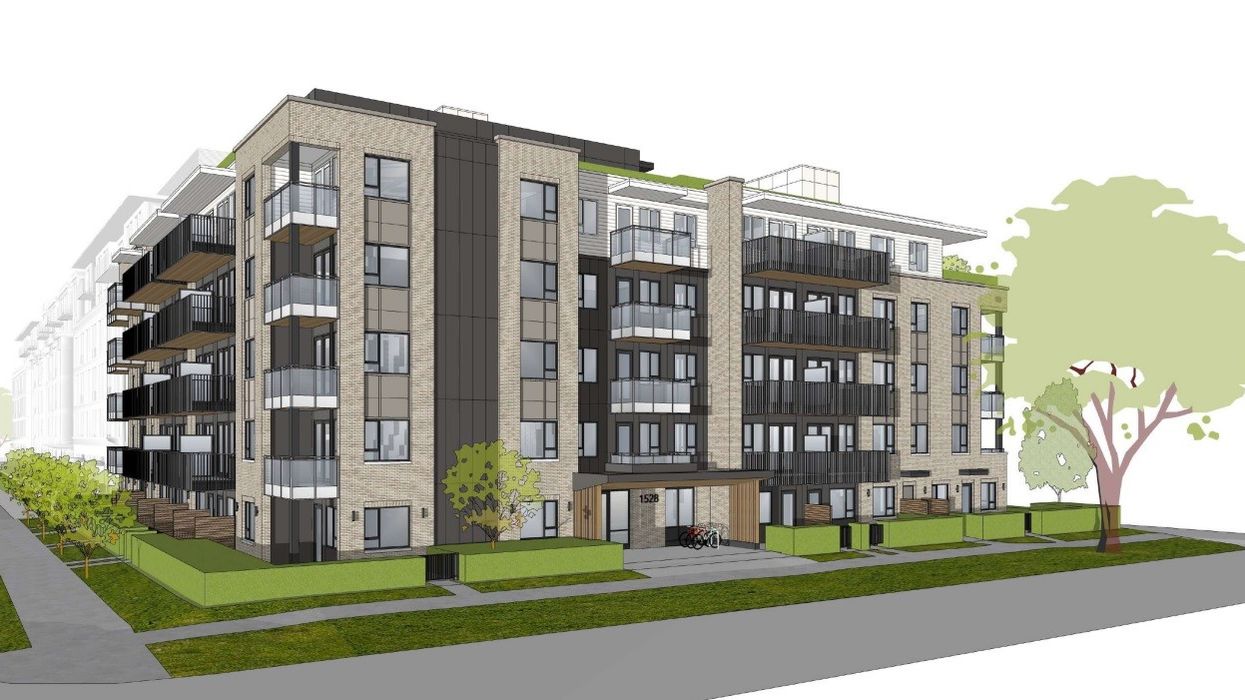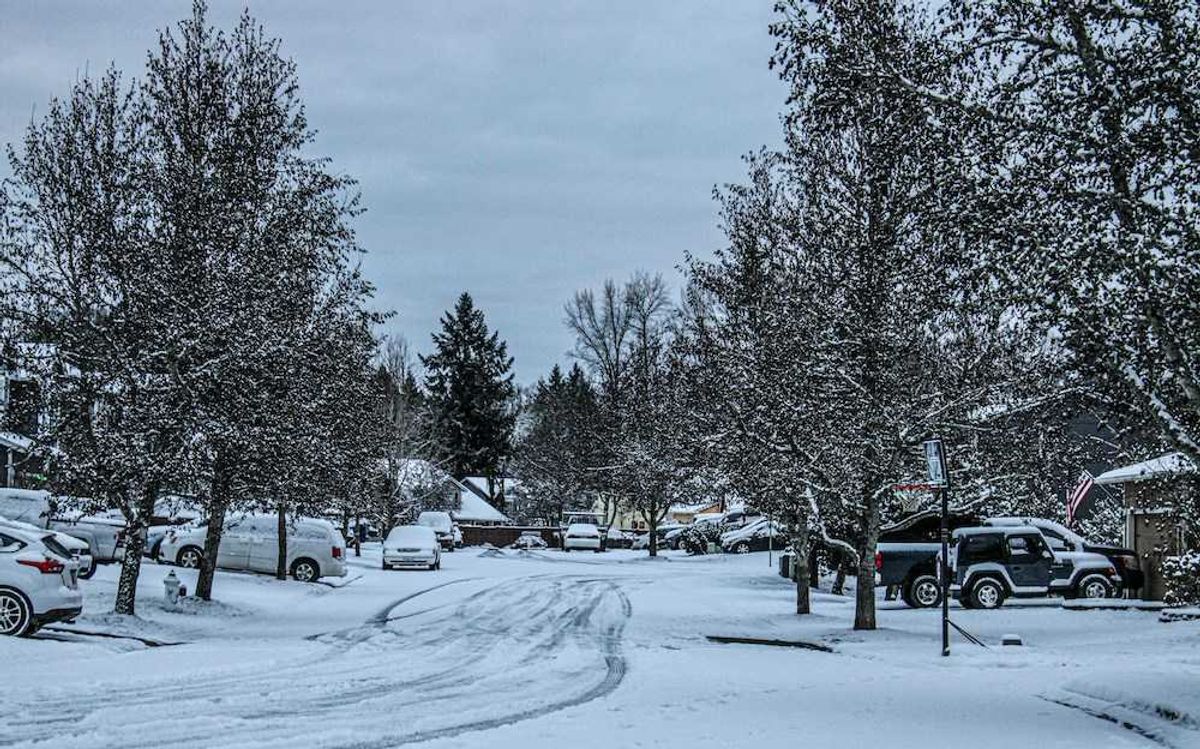A rental project in Vancouver that received Council approval earlier this year has since been put up for sale, a potential indicator of the tough economic factors that continue to hinder the development of rental housing.
The project is being developed by Intracorp Homes, a Vancouver-based real estate developer with over 45 years of experience, in partnership with Amica, a Toronto-based developer that specializes in private-pay senior housing that owns the property under Amica Seniors Granville Inc.
The project was set for 1522 W 45th Avenue and 6137 Granville Street in the Kerrisdale neighbourhood of Vancouver, about a five-minute drive west from the Oakridge Park project.
Intracorp Homes submitted the rezoning application for the project in February 2022, which was approved earlier this year in March. The subsequent development permit application was then submitted in May, and has not yet been issued, with the City's public comment period for the project running from June 28 to July 19.
Recently, the subject site was listed by commercial brokerage firm Colliers. The vendor is not named, but the listing notes that rezoning for the site has already been approved, a development permit application has been submitted, and the listing also uses a rendering that matches one found in Intracorp's application documents.
According to a council report from last year, the assembled two-parcel site is currently occupied by two single-detached homes constructed in 1960 and 1993. The site was rezoned from RS-3 (Residential) to RR-2B (Residential Rental), and the plan for the site was a five-storey rental project with 90 units, one level of underground parking with 37 spaces, and a floor space ratio of 2.39.
According to application documents prepared by Vancouver-based BHA Architects, the suite mix consists of 48 studio units, 10 one-bedroom units, 31 two-bedroom units, and one three-bedroom unit. There is no indication that the project was slated as a senior housing project, but the Council report notes that the development "will help support care aids and related professionals working at the nearby seniors' home."
Rental Development Headwinds
Intracorp has not responded to an inquiry made by STOREYS last week regarding the reasoning for the sale, but the sale could be read as an indicator of the current financial viability of rental projects, or lack thereof.
Speaking about the general state of rental development -- but not this particular project involving Intracorp -- Cynthia Jagger, Principal at Goodman Commercial and Vice Chair of the Urban Development Institute's Rental Housing Issues Committee, says that each of the headwinds rental development faced last year are all stronger now.
"Construction costs, shipping costs, everything to do with the construction industry, labour shortages, trades, the consultants and all their business expenses, City fees, DCCs, and CACs are all up," says Jagger. "And then layering on top of that there's a new Step Code coming in and seismic requirements, which are very important, but they add time, cost, and complexity to the projects."
"I think probably every group right now is looking at every one of their sites and updating their proformas," she says. "Some of them may work and some of them may not. For the last five or six years, we've kind of had all the stars aligned for new rental, because we had low interest rates, and we had a lot of municipalities opening up different areas for rental and incentivizing with some DCC-wavering and additional density. Now, the low interest rate environment is obviously gone, and then cap rates are up, so that means the hypothetical value of the building at completion is worth less, and all the costs associated with building are higher, and it makes it difficult in some cases to move forward."
Jagger says that this has translated to the sales volume of development sites being down substantially this year.
According to a recent report published by Avison Young, investment in multi-family totalled to about $280M in the first half of 2023, a small fraction of the $1.5B total recorded in the first half of 2022.
Those totals, of course, are not specific to rental housing, but the differences between developing rental housing and condominiums make its much harder for those looking to develop rental.
READ: Developers Of 24-Storey Contour Metrotown List Pre-Con Site For $19.8M, Citing "Market Conditions"
"One of the biggest differences is how much equity you need upfront, because for a rental building, you are really building it for a long-term hold, so maybe you make your money back in 20, 30, or 40 years," Jagger explains, "whereas with condos, once you've presold, once it's complete, you can move on to the next thing."
Going forward, Jagger says she believes there needs to be a mental shift back to market rental (rather than below-market rental), as they quickly become below-market buildings within a few years after completing due to rent control and the projects themselves become more financially viable. She also says there could be more deferrals or waivers for DCCs, potential property tax holidays for when a building is completed, eliminating the GST for rental projects, and more.
"I think it's like a 10-pronged approach that's needed, because we are so far behind."





















